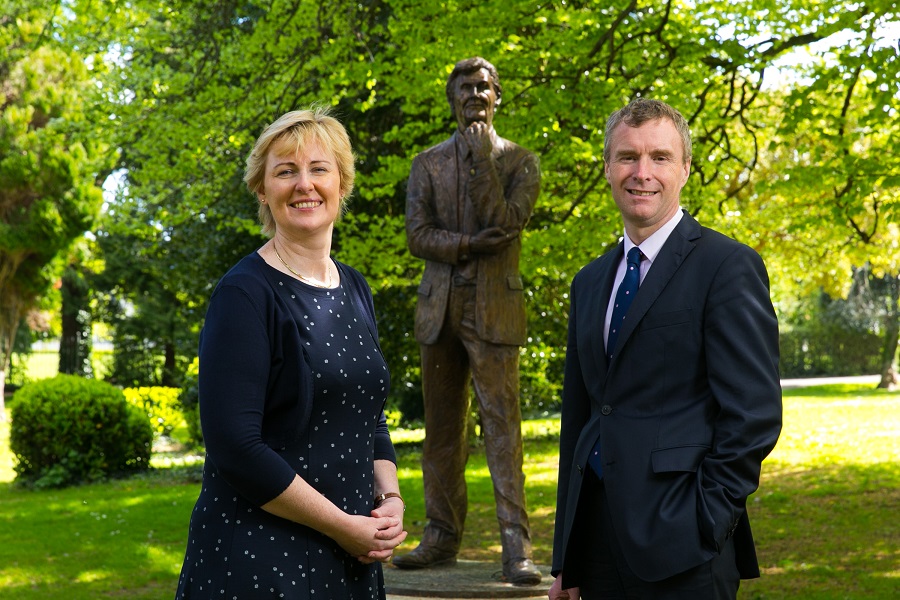Moving up the rankings: UCD Smurfit Executive Development
- Date: Thu, May 21, 2020
Share this article

UCD Smurfit Executive Development has for the first time been featured in the prestigious 2020 Financial Times Executive Education Rankings for both its open enrolment and customised programmes. Both programmes are ranked in the European top 50 with open enrolment programmes placed 27th and customised programmes in 47th position.
In the global rankings, the customised programmes are placed 85th globally with the open enrolment programmes rising to 42nd from 43rd place in 2019.
“UCD Smurfit School has now been listed among the world’s top business education providers by the Financial Times for two decades,” says University College Dublin’s College of Business dean Prof Anthony Brabazon. “This milestone comes at a time when we are seeing extraordinary changes to ‘business as usual’ as we collectively face the defining challenge of a generation. Now more than ever, investment in the development of leadership talent is essential.”
The rankings assess performance across a number of criteria with Smurfit Executive Development placed in the world’s top 50 across 14 of 16 categories in open enrolment while in the customised ranking, the school achieved 21st in the world for faculty diversity and 23rd for overseas programmes.
“Our high ranking results across multiple categories demonstrates our commitment to delivering premium, executive level programmes,” says Smurfit Executive Development director Helen Brophy. “We are bolstered by the breakthrough ranking of our customised programmes which have now been recognised among the world’s best. Our sustained and strategic investment in high-calibre faculty and innovative staff, growth of elite, global alliances and maintenance of prestigious accreditations have advanced our position on the global stage.”
The move up the rankings has been going on for some years, according to Brophy. “We went in at entry level and have worked our way up to 42nd,” she says. “One thing we tried to make sure of is that we don’t jump around a lot. Other courses can be quite unstable in the rankings. Our aim first was to get into the top 50 and then to improve. We got to 48 two years ago then went up to 43 and now to 42. That hasn’t been easy. There are always new entrants coming along from Latin America, Asia and Africa and the differences between placings can be very small.”
Stellar company
That achievement puts the school in quite stellar company. “Being in the same league as the London Business School is fantastic,” says Brophy. “The credit goes to the faculty and all the team here as well as to the course participants; 80 per cent of the marks come from participants and their experience of the course. We have been very strategic about our approach to the rankings. We do one thing at a time and we do it properly. We want to ensure we can stay in the top 50.”
Having established the open courses in the rankings it was time to look at the customised offering. “We decided to look at this last year. Our business is split 50:50 between open and customised courses but such an intensive effort goes into entering the rankings there is no point in doing it if you are going to drop considerably or even fall out after a while.”
The ranking system for both is similar in terms of the criteria used but the focus is on the client rather than the participant experience for customised courses. “Our first objective was to enter the rankings. From there it is to steadily work our way up to the global top 50. The way the rankings work it takes a number of years to work your way up. The hard part is getting into them.”
The benefits of the rankings run much deeper than just recognition. “When we started out on the FT rankings some years ago our philosophy was not to spend time and resources unless it benefits us,” Brophy explains. “And it really has. Being ranked benchmarks us against the very best in the world. The criteria help us to look at what we do here and make sure it is world class.”
Benefit
There are also benefits for clients of the customised programme.
“Our clients are making very significant investments in their people and it is important that it is recognised that what they are doing is world class. That’s an important retention mechanism for them as well.”
Brophy sees the rankings as part of the overall continuous improvement system at the school. “As director, I work with my counterparts in business schools around the world to see what best in class looks like and bring that back and apply it here. We look at where executive education is going in future and where the market is going. We ask how we can make things better and try to improve continuously. It’s great to get independent validation from the FT rankings that we are doing it right.”
This article first appeared on 21 May in The Irish Times.












